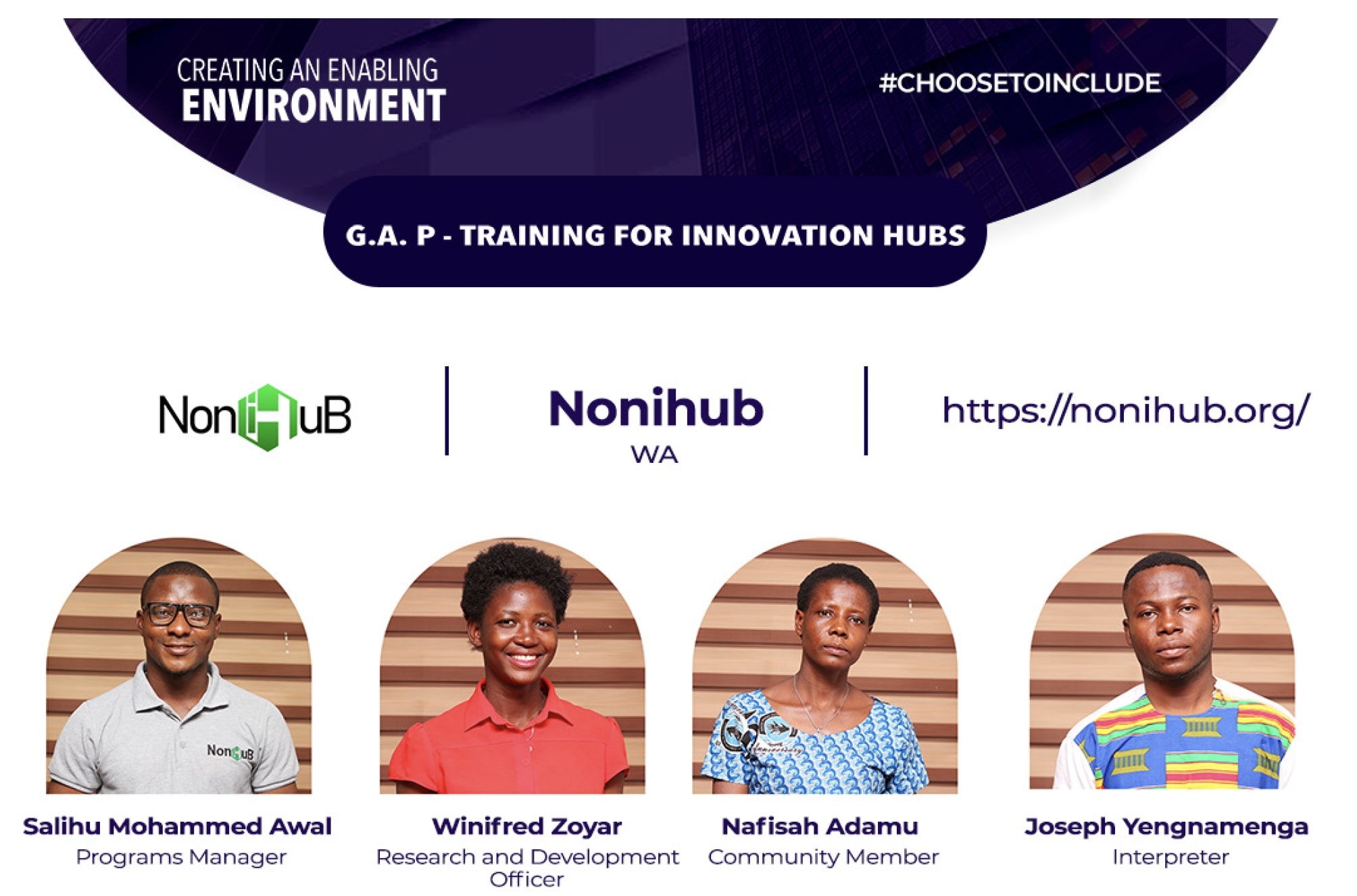Promoting Equity and Inclusion for Women, People With Disabilities and Marginalised Communities in Ghana
iSpace Foundation, RISA Funded Project Milestones
- iSpace Foundation recruited twenty-two hubs who received training, mentorship, and support to execute projects that revolve around women, people living with disabilities (PWDs), and vulnerable and marginalised groups.
- More than seven-hundred secondary participants impacted in each region of Ghana through training, mentorship, and financial support for the hubs to design and execute programs.
- Noni hub, working with iSpace, implemented a project to support hub members to improve communication with people with hearing impairments.
iSpace Foundation and Gender Awareness Programme
iSpace Foundation is an innovation and technology hub that offers a conducive environment for growth in the start-up ecosystem. The Foundation provides working space, training, mentorship, and access to funding for entrepreneurs to launch and manage their business.
The Gender Awareness Programme focused on community development at the grassroots level to help organisations build a business case and increase their understanding of gender mainstreaming, equity, diversity, and inclusion.
iSpace Foundation is an innovation hub whose work revolves around innovations, creatives, and technology with an overall purpose of creating an enabling environment in the different ecosystems.
The goal of the RISA funded project was to provide training, mentorship, and funding to women, PWDs, and marginalised groups on gender, equity, diversity, and inclusion. This project also identified topics and programmes for these groups to develop within their hubs.
At inception, iSpace Foundation recruited twenty-two hubs with forty-three individuals comprised of twenty-five female and eighteen male participants who received training, mentorship, and support to design and execute projects focusing on women, people living with disabilities, and people from vulnerable and marginalised groups.
At the start, we were looking at working with sixteen hubs but then it went all the way up to twenty-two based on the interest that was shown in the program. We covered sixteen regions of Ghana and ended up funding eighteen hubs who are tackling gender, equity, diversity, and inclusion (GEDI).
Training, Mentorship and Funding
iSpace Foundation conducted physical and virtual trainings, along with mentoring sessions for the hubs in four different zones in Ghana. To achieve better results, the hubs and participants were paired with a mentor and were required to develop programmes that would solve a certain need or needs within their communities.
Allowing the community to design their own programme was a good idea because they know the needs hence it is easy for them to develop solutions. Our job was basically to execute the program.
During the training, policies supporting GEDI programs were developed and funds provided to facilitate their capacity to design and manage programs that support women, PWDs, the vulnerable, and marginalised in the community. The training covered other areas such as documentation, financial administration, media, communication, monitoring, and evaluation of projects.
A GEDI programmes charter that supports inclusive economic growth was developed as a resource for hubs to guide in their work with communities. The charter is hosted on a resource platform and contains information about participant projects and other relevant GEDI information.
Addressing Language Barriers with the Hearing Impaired
One of the hubs, Noni hub, implemented a project targeting PWDs with an objective to improve communications for people with hearing impairment.
At the Noni Hub, we organised a gathering with the media, people with disability, those using wheelchairs where we were trained on basic sign language of communication.
According to Winifred, a language barrier is the biggest challenge within the deaf community. Having a common language within the hearing impaired will help in sharing ideas and improve interactions.
It will shock you that when PWD’s are included in programmes, they bring brilliant ideas you never expect. They have a right to be included in every programme because they are human beings.
The greatest achievement for iSpace Foundation was the ability to help startups design programmes that would directly benefit women, PWDs, the vulnerable, and the marginalised – including children and single mothers.
